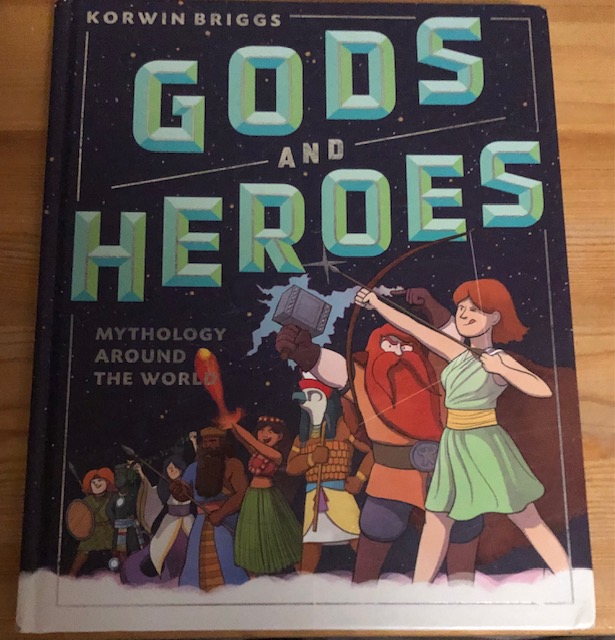When I was young, my father gave me a book. It wasn’t the traditional type of book that would follow the actions of different characters. It was a book of stories, not stories about a cat with boots who was a strong fencer, or of a princess who kissed a toad. These were the old stories, stories that have been told for more than 4,000 years. This was a book of mythology, a collection of ancient stories, often shaping the religious and societal aspects of cultures that have been lost to the ravages of time. These stories have endured when thousands of other stories have been lost to the ravages of time. These stories were remembered when people started to forget more about the cultures that they encompassed, despite the fact that those traditions had long been out of practice, maintaining their memory and beliefs throughout time. This alone is one of the reasons why stories are our greatest gift. They embody everything about humans–where they fuel our memories, our beliefs–every part of us, the good and the bad. What truly makes them a gift is that without the idea of storytelling, we would know nothing. We wouldn’t know that the seasons change or that the clouds move through the sky. We wouldn’t even know what one plus one equaled, for pity’s sake.
There is a story in my book that mentions the spider-god Anansi. In this story, he asked the sky god for the power of storytelling. But the sky god said that there was no way that he would ever give Anansi such great power. However, he did set a price: a snake, a leopard, some hornets, and a fairy (some tribes in western Africa did believe in fairies, which was an interesting discovery since the modern idea of a fairy originated from Irish mythology). Anansi managed to trick his way into capturing all four creatures as payment for the sky god. In return, he gave Anansi the power to tell stories and forever dubbed them as spider stories.
The reason why I shared this story is that the sky god had such an expensive price. He and the Akan people of Ghana (the tribe where Anansi originated) realized that stories had a huge impact on society. How they can be used to entertain and educate children, how they can be used to make an argument against someone, and how they can be used to trick and hurt people. Knowing this, the sky god gave Anansi a challenge. They made it so that he would have to think, plan, and trick his way into capturing all four creatures. But that doesn’t stop with just the Akan. Nearly every single culture that has ever existed in our world has appreciated stories, from the Arapahoe of the western plains (here) to the Norsemen of the far north. Even the cavemen, the most primitive forms of society, valued stories so much that they are permanently etched on the walls of their caverns.
Stories are a huge part of human culture, especially ours. In fact, one of our most productive industries (Hollywood) was designed to make stories to spread around the U.S. and in some cases the world; heck, even The Owl is here to keep stories alive. Every single article written in this newspaper has a story of a brilliant young mind who thought of something that they could share and connect with the people here at Boulder High. And that is why it is humanity’s greatest gift. Through stories, we can relate and connect with people. We can learn about people’s past, their experiences, and how, in most cases, they change them. Through stories, we can share the memories of those we have lost, while in the process keeping them alive. Through stories, we remind ourselves what it’s like to be a human being.



